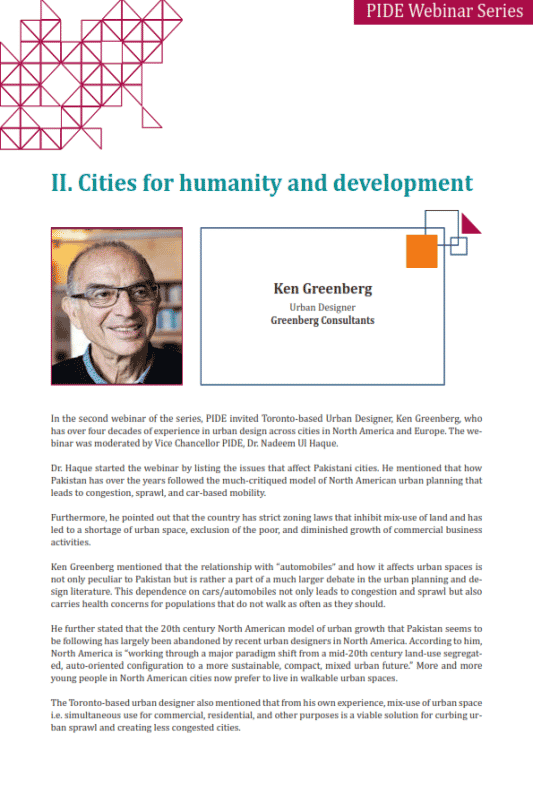Cities for humanity and development – ii
In the second webinar of the series, PIDE invited Toronto-based Urban Designer, Ken Greenberg, who has over four decades of experience in urban design across cities in North America and Europe. The webinar was moderated by Vice Chancellor PIDE, Dr. Nadeem Ul Haque. Dr. Haque started the webinar by listing the issues that affect Pakistani cities. He mentioned that how Pakistan has over the years followed the much-critiqued model of North American urban planning that leads to congestion, sprawl, and car-based mobility. Furthermore, he pointed out that the country has strict zoning laws that inhibit mix-use of land and has led to a shortage of urban space, exclusion of the poor, and diminished growth of commercial business activities. Ken Greenberg mentioned that the relationship with “automobiles” and how it affects urban spaces is not only peculiar to Pakistan but is rather a part of a much larger debate in the urban planning and design literature. This dependence on cars/automobiles not only leads to congestion and sprawl but also carries health concerns for populations that do not walk as often as they should.




